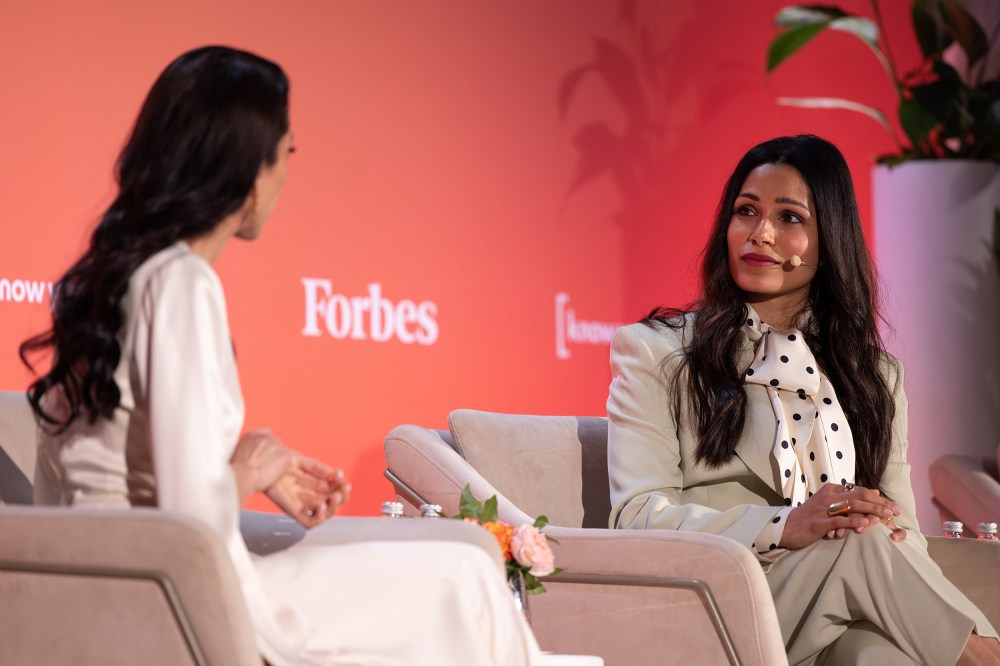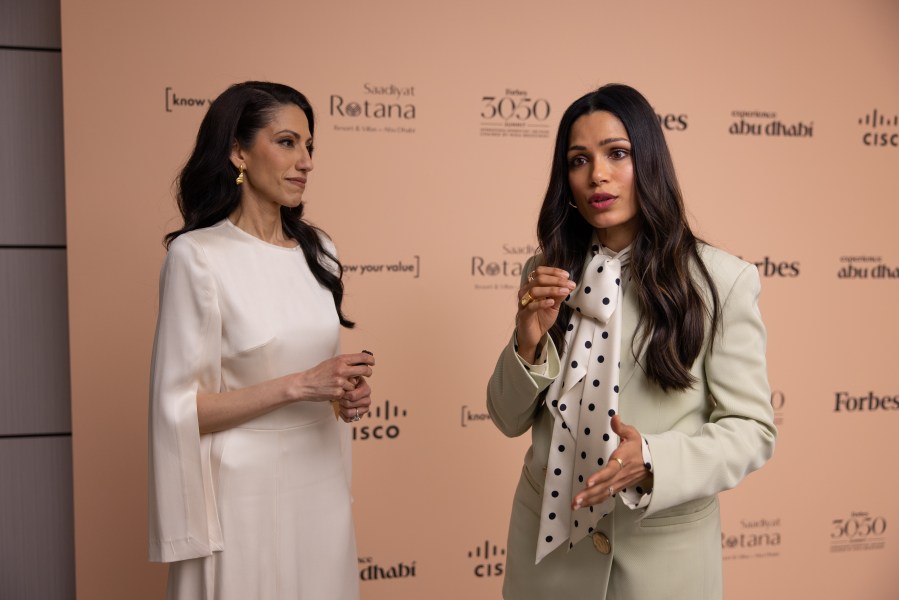It’s been nearly two decades years since Freida Pinto, 40, burst onto the big screen in the Oscar-winning film, “Slumdog Millionaire,” but today she shows no signs of slowing down.

In the years since her breakout role, the Indian actress has cemented her place in Hollywood. She’s appeared in films including “Trishna,” “Rise of the Planet of the Apes,” “Desert Dancer,” “Knight of Cups,” “‘Hillbilly Elegy,” and most recently in the starring role of the British romantic comedy, “Mr. Malcom’s List,” which she also executive produced.
But there was a time when her career felt uncertain after she experienced bias in the roles she was offered. “I didn’t want to play the cardboard cutout; I didn’t want to be the sidekick girlfriend … I wanted to be seen,” Pinto told Huma Abedin, vice chair of the 30/50 Summit and MSNBC contributor on Thursday at Forbes and Know Your Value’s 30/50 Summit in Abu Dhabi.
Forbes and Know Your Value’s 30/50 Summit kicks off by inspiring the next generation
What started off as an effort to reject being typecast turned into a two-year hiatus from acting, which drove Pinto into a place of deep anxiety, but ended up being the push she needed to find her voice and true mission.
“I just think that the noise of Hollywood, and the pressure that I felt, and the scripts that were fed to me, which was, ‘You’re a beautiful girl, just play the beautiful girl’ — I accepted it almost — and then I had to burst out of it and go through a painful path, but come out of it feeling actually even more empowered than ever before,” she said. “That was like the wake-up call — they’re not going to tell the stories I want to tell — I have to tell them myself.”
That led Pinto to explore the production side of her industry — learning how to find allies, cultivate relationships with mentors — and ultimately launch her own production company, Freebird Films, which centers female-driven stories.

“First in my life came the allies, second came the mentors … but my allies were male to begin with, and it’s mainly because the industry supports male producers much more than they support female producers — they support male power,” she said. “In my case, when I had those male allies, they could see the injustice, and they could see that I wanted to change that, and they allowed me into their lives to understand what producing was all about, what I would need to do and where I would need to start … the mentors I found after I figured out what I wanted to do and how I wanted to do it.”
She cited her Freebird Films producing partner, as well as Marvel Studios veteran Victoria Alonso among her biggest sources of inspiration and mentorship along the way.
But Pinto’s drive to tell more complex stories has been informed by her activism and the decades of advocacy work she’s done to uplift the struggles of women, mothers and girls around the world.
Following her work with Plan International’s “Because I am a Girl” campaign in 2012, Pinto joined Girl Rising — a global movement focused on girls’ education through storytelling — as an ambassador, co-narrating the organization’s first documentary in 2013. Since then, she’s used her influence to call attention to the more than 60 million girls worldwide who have little or no access to education.












